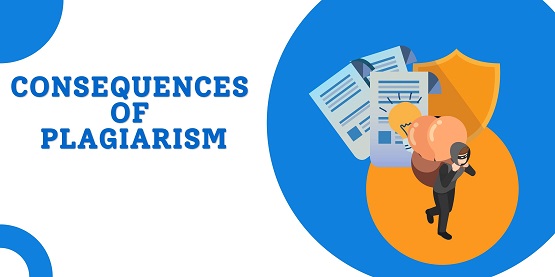Plagiarism is considered a significant academic violation because it is a type of cheating. If the research work written by an author is not their own and has been copied from another source, that research work is plagiarized. Without consent, using previously published or unpublished work in any form, whether printed or electronic format, can cause serious repercussions.

The following examples show plagiarism
- Submitting an identical piece of work for two different research papers (self-plagiarism).
- Copying a diagram, picture, graph, or photo into your paper without citing the source is also a form of plagiarism.
- Copying material and modifying only a few words or representations to “put it into your own terms” is patchwork plagiarism.
- Inappropriately utilizing material obtained via a personal interview or discussion without crediting the source.
- Not citing the sources for any material you used in your work is a severe offense.
- The act of purchasing a paper on the internet or from another student.
- Avoiding quotation marks for direct quotations in your writing is also a serious offense.
What are the consequences of plagiarism for research articles?
● Monetary repercussions
Recent news stories and publications have uncovered plagiarism by journalists, writers, celebrities, and scholars. An author who sues a plagiarist may get monetary compensation. If a journalist or student is caught plagiarizing for a magazine, newspaper, or other publication, they may be fined (penalty).
● Legal Consequences
Replicating another source without providing proper credits is plagiarism. It leads to serious legal plagiarism consequences. In fact, an author has the right to sue a plagiarist. At times, plagiarism may be waived off with a minimal fine. However, if the plagiarists earn a substantial amount after publishing the plagiarized content, they might face 10 years in jail and a hefty fine would be levied. Journalists and novelists, for example, are especially prone to plagiarism. A person may face the consequences of plagiarism in research which is a severe ethical and legal concern for authors.
● Damaged educational integrity
If you have ever thought about what are the consequences of plagiarism, then it is important to know that the allegations of plagiarism might result in suspension or expulsion. The academic record may show an ethical violation, preventing the students from attending high school or another institution. Plagiarism is a big deal in any university. At universities, there are usually committees that look into academic dishonesty. Many universities suspend first-time offenders. Repeat offenders are typically expelled.
● Ruined academic reputation
An individual may face the consequences of plagiarism in university if he/she is scarred with allegations of plagiarism. A plagiarism accusation may destroy a student’s career. A well-respected academic career comes with the power to write publications. People who write plagiarized content lose their reputation, eventually getting deprived of an educational post.
● Career Impact
You might wonder what the consequences of plagiarism are? Will it cause much harm? A politician, businessman, or public figure will not only be fired or asked to leave their current employment but will also have difficulty finding another decent job. So, people should always question what are the consequences of plagiarism when they plan to copy something and include it in their research articles.
In a Nutshell
Plagiarism has a significant impact on everyone. It is a moral and legal crime that can’t be excused by ignorance or status. The first thing you should do before you start writing is to learn about what are the consequences of plagiarism. If you aren’t sure who to credit, use an online plagiarism detection tool before submitting your research work.











